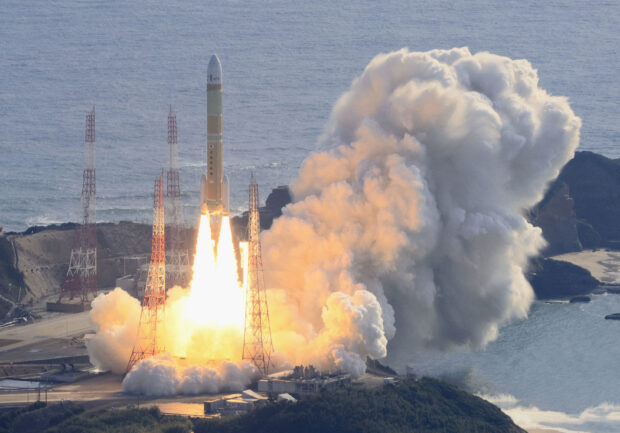Japan successfully launches new H3 rocket after failure in 2023

TOKYO — Japan’s space agency on Saturday successfully launched a second test model of its new flagship rocket H3, in a welcome boost to its space program after last year’s inaugural flight failed.
The launch further burnishes the country’s space credentials, following the historic “pinpoint” moon landing of Japan’s SLIM spacecraft last month.
The Japan Aerospace Exploration Agency (JAXA) and primary contractor Mitsubishi Heavy Industries have designed the H3 to replace the two-decade-old H-IIA, hoping that its lower costs and greater payload capacity will help them win launch orders from global clients.
READ: Japan suspends H-IIA rocket launch for moonshot because of strong winds
The H3 had a “successful liftoff” at 9:22 a.m. Tokyo time (0022 GMT) and was “on course” with its engines properly working, JAXA said in a live broadcast that showed scientists clapping and hugging each other at Tanegashima Space Center.
The rocket has released one micro-satellite, is due to release another, and then about two hours after liftoff will release a dummy satellite.
The H3’s first flight in March ended up with ground control destroying the rocket 14 minutes after liftoff because its second-stage engine failed to ignite. JAXA listed three possible electrical faults in a review released in October but could not identify the direct cause. The failure caused widespread delays in the country’s satellite and planetary exploration plans.
JAXA will host a press conference later in the day.
READ: Japan launches rocket carrying lunar lander and X-ray telescope to explore origins of universe
The 63 m (297 ft) H3 is designed to carry a 6.5 metric ton payload into space and reduce per-launch cost to as low as five billion yen ($33 million) by adopting simpler structures and automotive-grade electronics. By comparison, the H-IIA costs about 10 billion yen per launch.
The government plans to launch about 20 satellites and probes with H3 rockets by 2030. The H3 is scheduled to deliver a lunar explorer for the joint Japan-India LUPEX project in 2025 as well as cargo spacecraft for the U.S.-led Artemis moon exploration program in the future.
Satellite launch demands have skyrocketed thanks to the rise of affordable commercial vehicles such as SpaceX’s reusable Falcon 9 and a number of new rockets are being tested this year.
Last month marked the successful inaugural flight of the United Launch Alliance’s Vulcan rocket, a joint venture between Boeing and Lockheed Martin. The European Space Agency also plans to launch its lower-cost Ariane 6 for the first time this year.
($1 = 150.2100 yen)